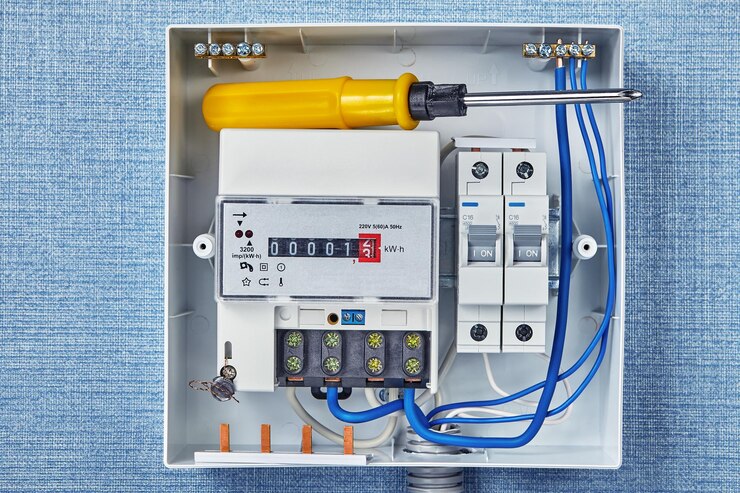In today’s digital age, efficiency and accuracy are paramount for water suppliers in Kenya to manage their billing systems effectively. Smart billing systems have revolutionized the way water suppliers operate, offering advanced features and functionalities that streamline processes and enhance customer satisfaction. In this comprehensive guide by M-Paya Energy, we’ll delve into the world of smart billing systems for water suppliers in Kenya, exploring their benefits, functionalities, and implementation strategies.
1. Understanding Smart Water Billing Systems
1.1 What are Smart Water Billing Systems?
Smart Water billing systems in Kenya leverage cutting-edge technology to automate billing processes, monitor consumption, and provide real-time data insights. These systems utilize smart meters and IoT devices to collect accurate usage data, enabling water suppliers to generate precise bills and track consumption patterns efficiently.
1.2 Benefits of Smart Water Billing Systems
- Accuracy: Smart billing systems eliminate manual errors, ensuring accurate billing and reducing disputes.
- Efficiency: Automated processes streamline billing operations, saving time and resources for water suppliers.
- Data Insights: Real-time consumption data allows for informed decision-making and proactive leak detection.
- Customer Satisfaction: Enhanced transparency and billing accuracy improve customer trust and satisfaction.
2. Key Features of Smart Water Billing Systems
2.1 Water Metering Solutions
Smart billing systems integrate advanced water metering solutions that accurately measure consumption and transmit data wirelessly. These meters utilize ultrasonic or electromagnetic technology to provide precise readings, ensuring billing accuracy and reducing revenue losses due to inaccuracies.
2.2 Prepaid Water Meters
Prepaid water meters in Kenya enable customers to pay for water services in advance, promoting efficient usage and reducing non-payment risks for water suppliers. These meters offer flexibility and convenience for both suppliers and consumers, allowing for easy monitoring of account balances and usage patterns.
2.3 Prepaid Water Billing System
A prepaid water billing system in Kenya allows customers to top up their account balances via various channels, such as mobile apps or vending stations. This pay-as-you-go model empowers consumers to manage their water usage effectively while providing a steady revenue stream for water suppliers. Additionally, prepaid systems help alleviate billing arrears and improve cash flow for suppliers.
3. Implementing Smart Water Billing Systems
3.1 System Integration
Integrating smart billing systems with existing infrastructure requires careful planning and coordination. Water suppliers should work closely with technology providers like M-Paya Energy to ensure seamless integration and compatibility with legacy systems.
3.2 Training and Support
Comprehensive training programs should be provided to staff members responsible for managing and maintaining smart billing systems. Adequate technical support and troubleshooting resources should also be available to address any issues or concerns promptly.
3.3 Customer Education
Educating customers about the benefits and functionalities of smart billing systems is crucial for successful adoption. Water suppliers in Kenya should communicate effectively through various channels, such as newsletters, websites, and community outreach programs, to ensure customers understand how to utilize the new system effectively.
4. Ensuring Data Security and Privacy
4.1 Data Encryption
Protecting sensitive customer data is paramount in smart billing systems. Encryption protocols should be implemented to secure data transmission and storage, safeguarding against unauthorized access or cyber threats.
4.2 Compliance with Regulations
Adhering to relevant data protection regulations and industry standards is essential to ensure compliance and mitigate legal risks. Water suppliers should stay informed about evolving regulatory requirements and update their systems accordingly to maintain data security and privacy.
5. Future Trends and Innovations
5.1 Artificial Intelligence
The integration of artificial intelligence (AI) technologies holds immense potential for enhancing the capabilities of smart billing systems. AI algorithms can analyze consumption patterns, predict demand, and optimize billing processes, further improving efficiency and accuracy.
5.2 Blockchain Technology
Blockchain technology offers a decentralized and secure platform for managing transactions and data exchange in smart billing systems. Its transparent and immutable nature enhances trust and transparency among stakeholders, paving the way for innovative billing solutions.
Smart Water Billing Systems Conclusion
Smart billing systems represent a paradigm shift in the water supply industry, offering unprecedented efficiency, accuracy, and customer satisfaction. By embracing these technologies and implementing best practices, water suppliers can optimize their billing processes, enhance data security, and pave the way for a sustainable future. Contact us today for a customized Smart Metering Solutions Consultancy Quote
Smart Water Billing Systems in Kenya FAQs
1. What are the main advantages of smart billing systems for water suppliers?
Smart billing systems offer benefits such as accuracy, efficiency, data insights, and customer satisfaction.
2. How do prepaid water meters benefit both water suppliers and consumers?
Prepaid water meters promote efficient water usage, reduce non-payment risks, and provide flexibility and convenience for consumers.
3. What steps should water suppliers take to ensure the successful implementation of smart billing systems?
Water suppliers should focus on system integration, training and support, and customer education to ensure successful implementation.
4. How can smart billing systems enhance data security and privacy?
Smart billing systems utilize data encryption and comply with regulations to protect sensitive customer data and mitigate legal risks.
5. What are some future trends and innovations in smart billing systems?
Future trends include the integration of artificial intelligence and blockchain technology to further enhance efficiency and transparency in billing processes.
